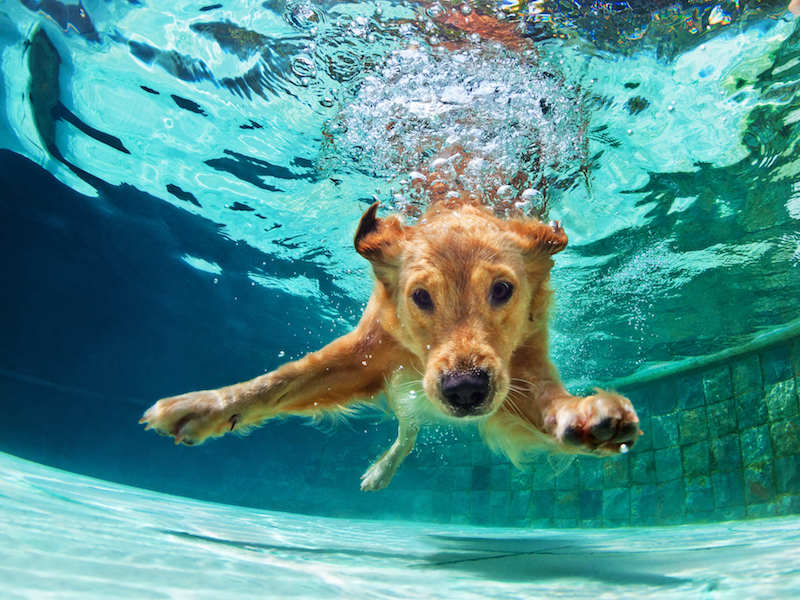
There are many factors which can affect the electrical circuitry of your hearing aids. Hearing aids seem to self-destruct under extreme moisture conditions. Taking that into consideration, humidity is a huge problem.
Irreversible damage is done by invisible moisture. It’s essential to educate yourself about why humidity damages hearing aids.
Let’s Talk About Humidity
Despite the fact that the word humidity is very common, what does it actually mean? PBS defines humidity as water molecules in the air. The relative humidity refers to the ratio of water molecules in the air compared to how many the air can actually hold. The higher the percentage, the wetter everything feels.
Humans are very sensitive to humidity because sweat is the most effective way to cool down the body. When you sweat it evaporates into the air, but that doesn’t happen as quickly when the humidity level is high. Electronics are also susceptible to humidity and that is why it has such a detrimental effect on hearing aids.
Understand Humidities Effect on Hearing Aids
Too high or, too low, humidity can influence your hearing aids. When it’s too damp, the delicate electronics will collect condensation. When it’s too dry things become more brittle.
Internal electronics are the reason your hearing aids work. A sophisticated signal processing chip controls noise levels in a modern hearing aid. Because of this, you get awesome features like:
- Noise reduction
- Anti-feedback
- Targeted listening programs
- Digital sound streaming
Moisture can accumulate inside the hearing aid when humidity is high and damage that component. Batteries get wrecked and you get corrosion of elements inside of the case. It’s the same as throwing your hearing aid in a sink of water.
Keeping Humidity Under Control
If you are shopping for hearing aids, try to look for products that are water-resistant. Having this feature doesn’t mean you can swim with your hearing aids in your ear, but it does offer some protection from humidity and other weather-related issues like getting caught in an unforeseen rainstorm or even sweat when you work out.
If you live in a humid area, consider getting a room or house dehumidifier to decrease water vapor indoors. It’s an investment that will help you and your family in many ways and protect other electronic devices like that expensive TV you got for Christmas. Dust mites, mildew, and mold thrive in moist environments so a dehumidifier will improve the quality of breathing as well. However, protecting your hearing aid more completely will require additional thinking. You will need to take other steps at the same time.
Look for the dehumidifier made for hearing aids. They come at all costs levels. Silica gel crystals in a drying kit are used to protect electronics. Moisture is eliminated by putting the hearing aids into the dehumidifier for a couple of hours. Drying your hearing aids as you sleep at night can be done using specially designed storage containers. If it is very humid and you have no other way, uncooked rice can reduce moisture.
Get in the habit of opening the battery compartment every time you store your hearing aids. By pulling that door open before you put the hearing aid down, you expose the batteries and other elements to the air, allowing any condensation built up to evaporate naturally. Don’t just do this in the summer, do it all year round.
Always store your hearing aids in a cool, dry place. Avoid putting them in the glove compartment, in a hot room or on a table in the sun.
Thinking Beyond Humidity
Air vapor is not the only moisture that can damage hearing aids. Take precautions to protect them from other kinds of wet such as:
- Don’t touch your hearing aids with hands that are still moist from lotion.
- Leave your hearing aids in a safe place before you go swimming.
- Wear a sweatband when exercising. It’s a good practice whether you wear your hearing aids when you workout or not. Sweat in your ears can cause problems later.
- Check surfaces before you put your hearing aid down. You don’t want to place it in a wet spot left by a glass or coffee cup.
Your hearing aids are a valuable asset, so treat them that way. Keep in mind how moisture can damage your hearing aids and make sure to prevent water from getting in them. If your hearing aid already has water damage make an appointment for service with a hearing aid specialist.